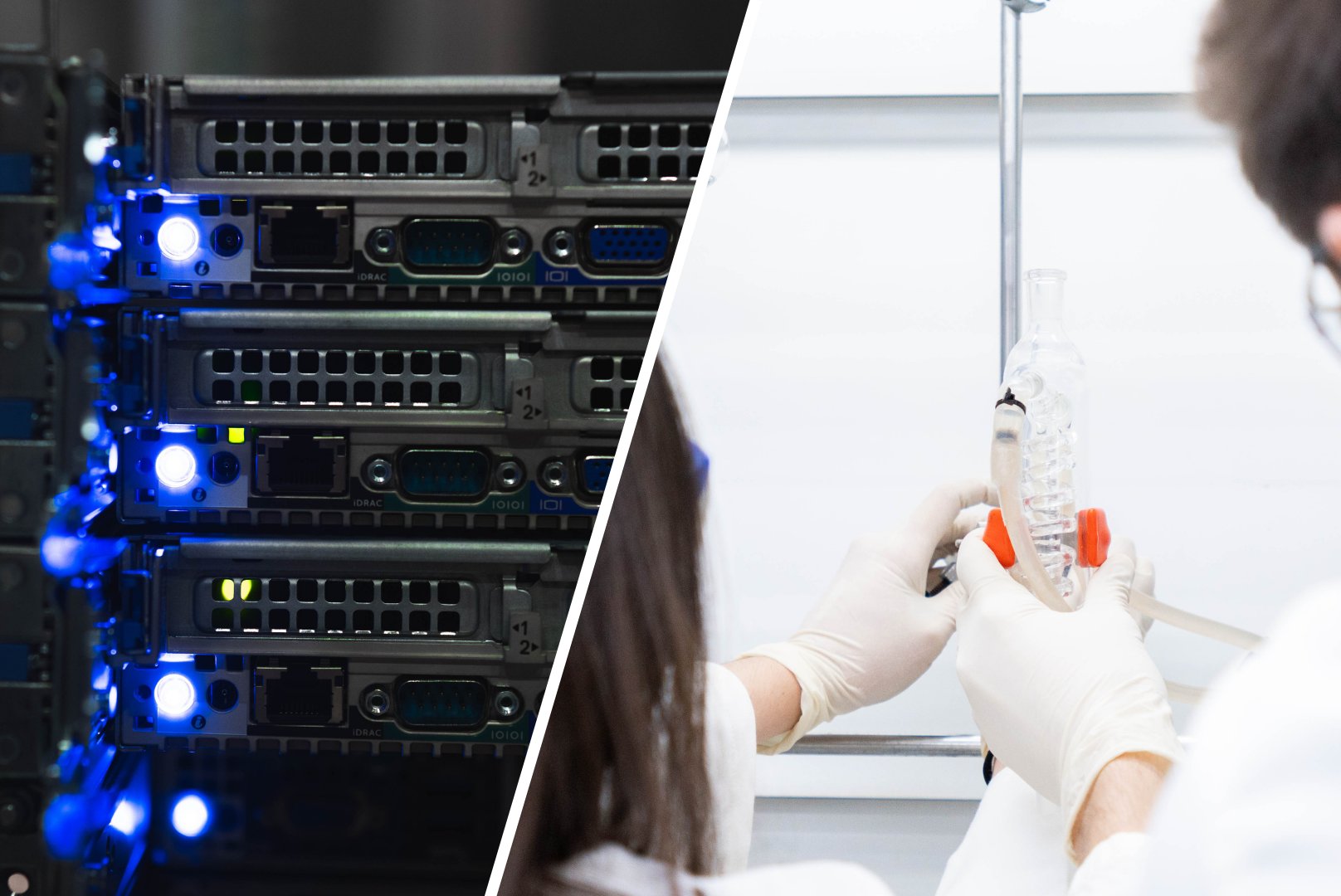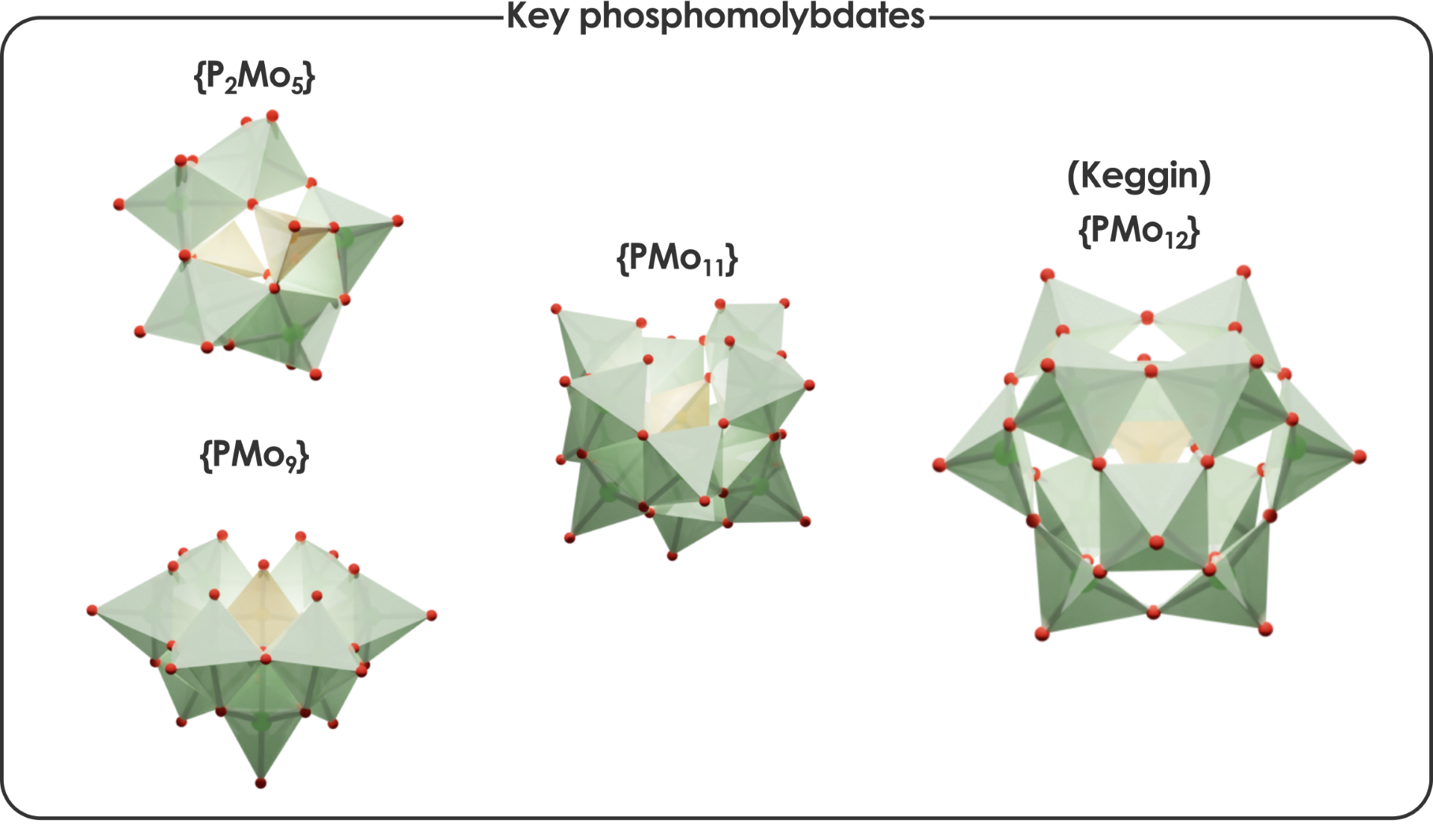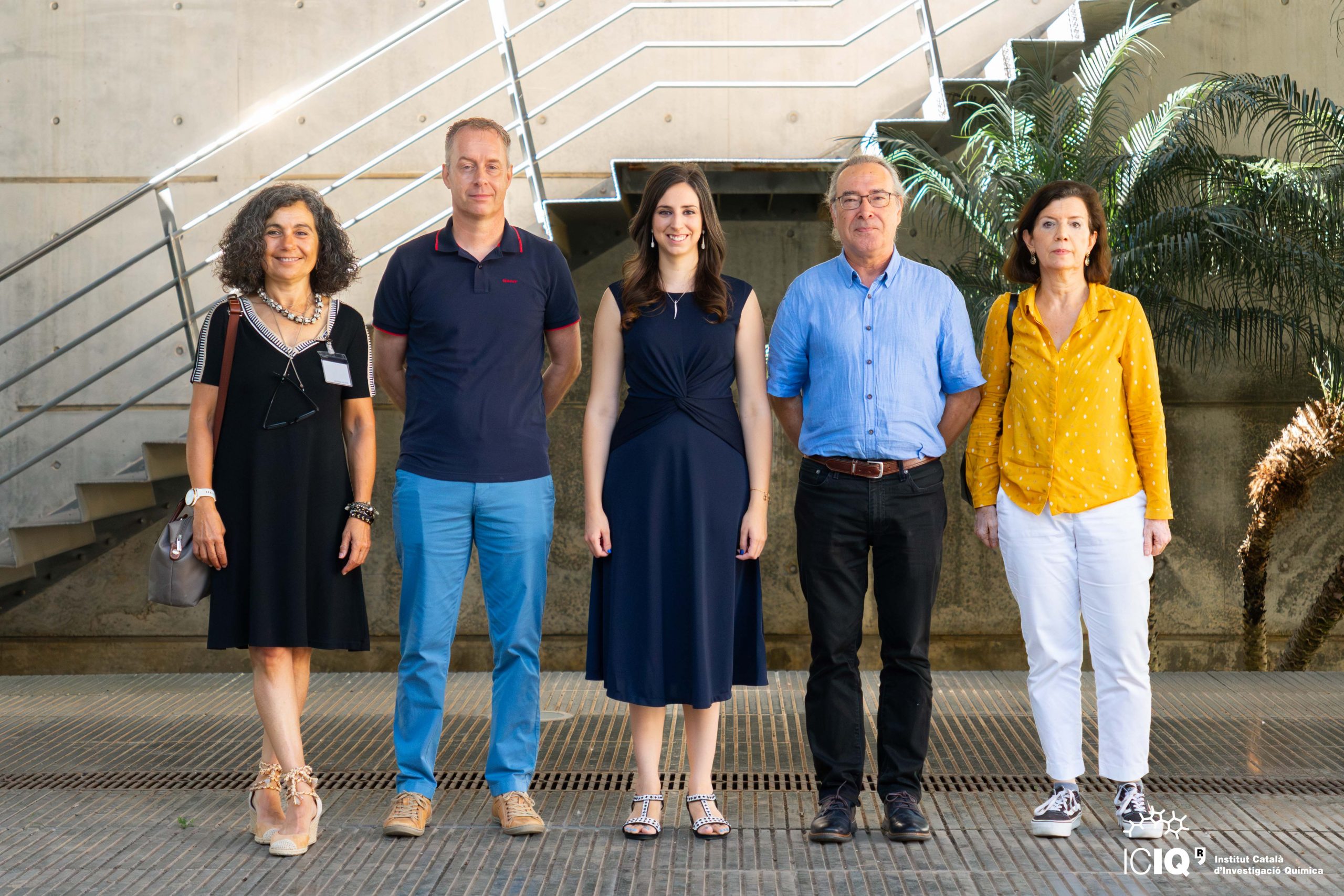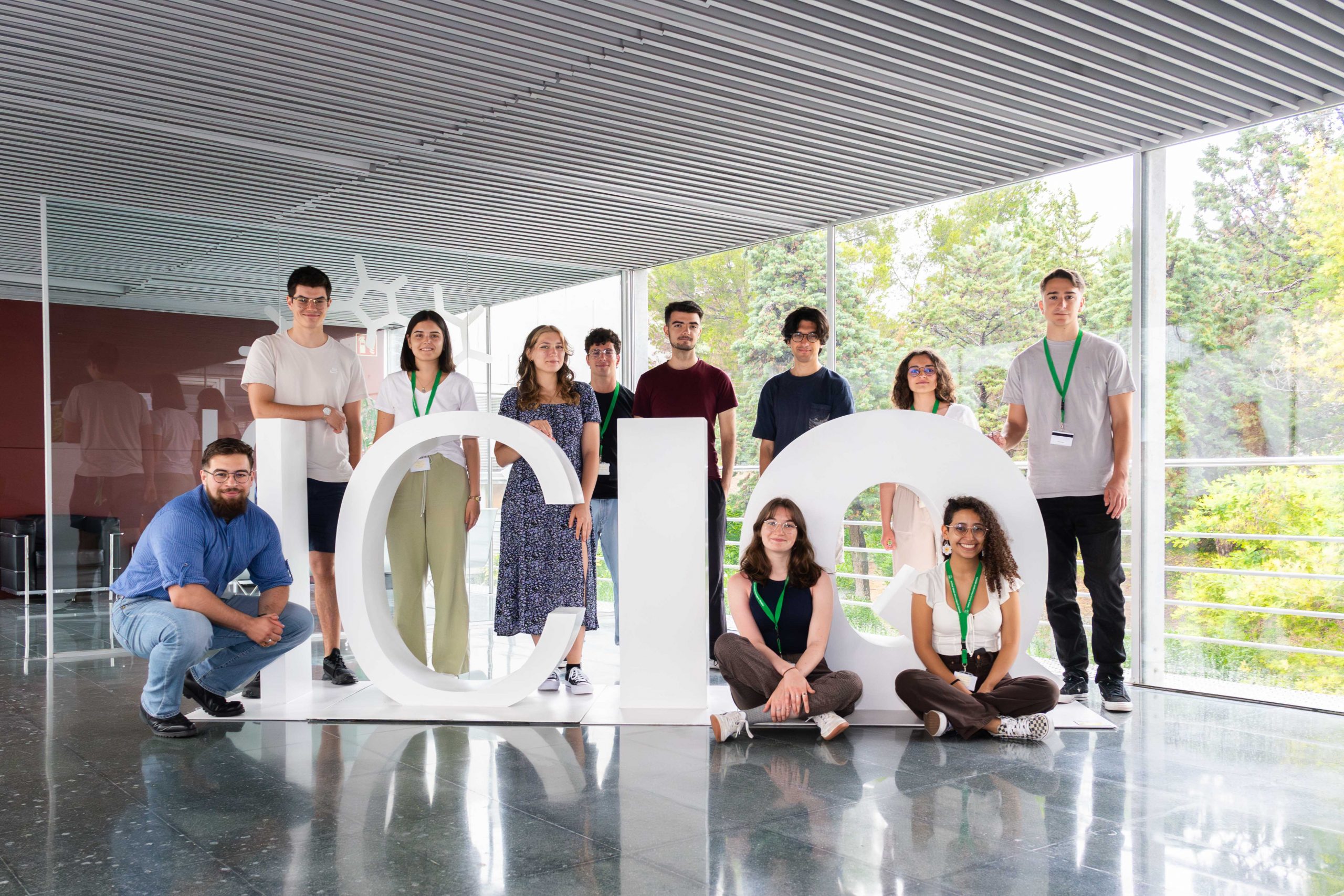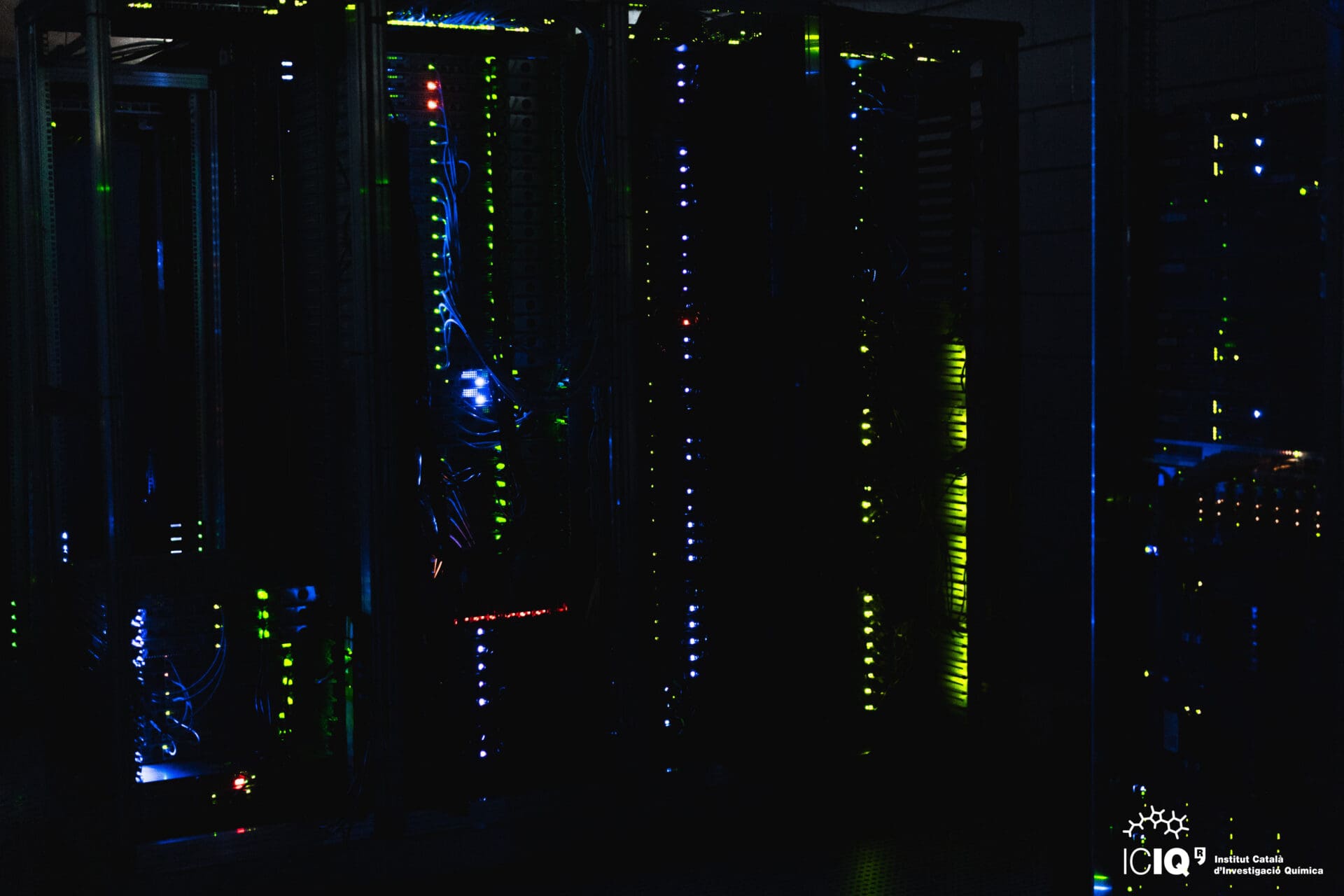ICIQ receives funding to coordinate 4 «Strategic Projects Oriented to the Ecological Transition and Digital Transition»
The aim of these grants is to promote R+D+i activities in order to increase the competitiveness and international leadership science and technology from Spain through the generation of scientific knowledge by way of qualityresearch oriented towards the ecological transition and the digital transition.
The ecological transition is supported by the following environmental objectives: climate change mitigation, climate change adaptation, sustainable use and protection of water and marine resources, circular economy, pollution prevention and control, and environmental protection and recovery of biodiversity and ecosystems. The projects will pursue environmental objectives, applied to productive activities, the protection of natural resources and the quality of life of people and society as a whole.
The digital transition aims to enhance the necessary infrastructures, skills and technologies for a digital economy and society, through digitalization, taking full advantage of the synergies and opportunities of new technological and data management developments, using disruptive digital technologies, and putting people and their digital rights at the center of the process.
The projects selected in this year’s call are leaded by: Prof. E. Palomares, Prof. C. Bo, Prof. J. Lloret and Dr. E. Romero.
SOLARCO (Prof. Emilio Palomares’s Group)
Solar Energy Driven CO2 Reduction
Partners: Instituto de Tecnología Química (ITQ, UPV-CSIC)
Summary:
SOLARCO aims to couple efficiently solar cells in tandem configuration (subproject 1) with the catalytic reduction of carbon dioxide (CO2RR) using active metal sites embedded in doped graphitic carbon-based materials as electro active catalysts (subproject 2) in order to achieve self-sufficient devices able to produce carbonaceous materials of interest in locations not connected to the electrical grid.
Moreover, the project targets to rationalize the products of the CO2 reduction, with the applied electrical bias, the nature of the catalyst and the reactor design in a solar-powered system. SOLARCO will use solar cells based on hybrid perovskites and organic semiconductor molecules as photoactive material and semiconductor nanoparticles with preferential orientation to one of the crystal facets as electrocatalysts. To achieve our objectives, the project has enrolled a multidisciplinary research team placed in two different Institutions (ICIQ, Tarragona (leading subproject 1) and ITQ-UPV-CSIC, Valencia (leading subproject 2) with previous experience on the fabrication of photovoltaic devices, the measurements and analysis of electrochemical devices and the synthesis and characterisation of electrocatalysts. This project represents a challenge with a great deal of fundamental and applied research that implies:
- The design and fabrication of perovskite-based solar cells that, forming part of a multijunction device, deliver sufficient current and voltage (tandem devices) for the reduction of CO2.
- The design, synthesis and the characterization of active metal/bi- and multimetallic sites decorating doped graphitic carbon matrix with preferential orientation to one facet
- The understanding of the material properties that favour the increase in solar-to-fuel conversion efficiency in CO2 electrochemical reactors; (iv) the design and fabrication of solar powered CO2 electrolizers for application in remote places and (v) the analysis of the catalyst stability and its degradation products.
Impact:
We anticipate that this project will result in the demonstration of new scalable low-cost photovoltaic technology, based on perovskite materials, that will find their future niche market place, which will be coupled to low cost electrocatalyst for the synthesis of liquid fuels employing CO2 as a feedstock. It will therefore form the basis of a potentially substantial scientific and technological opportunity for the Spanish and Europe, and allow developing innovative solar cell products within the EU, with novel and much improved characteristics compared to existing technologies. Needless to say, that this will benefit the entire Spanish and European community in creating low-cost in-situ accessible solar energy technology for the synthesis of chemical added-value products such as methane, acetic acid among other C1 and C2 products.
Data4Mat (Prof. Carles Bo’s Group)
Linked chemical databases to boost materials discovery
Summary:
This project will boost the digital discovering of new catalysts to help solving crucial societal challenges such are the climate change and the quest for alternative energies sources by applying modern computational chemistry methods and advanced data treatment. Fixing CO2 to create value-added chemicals as are organic carbonates and/or polycarbonates, and finding catalytic materials to form hydrogen efficiently are the two main targets of the project. To do so we propose the creation of what we call the Reaction Mechanisms Knowledge Base, that is a new kind of well-structured database that will allow representing all the chemical knowledge and properties about catalytic processes in a comprehensive and machine-readable way. Digitalizing chemical and catalysis data, based on ontologies, will allow
inferring new properties thanks to the straightforward connection to other databases, to develop predictive graph deep-learning methods, and to accelerate catalytic materials discovery.
Relying on recent results of the research group, and facing the state-of-the-art, ioChem-BD emerges as the ideal platform to build such those new tools around. In addition to the new raw data well-structured and that will be made publicly available in open form, additional open-source tools will be created that will implement advanced data analytics and artificial intelligence based predictive methods. Since all the data and services will be hosted by the Barcelona Supercomputer Center, this project will promote both the use of that infrastructure and data good practices among the community.
Impact:
This project will create an ontology for defining and properly coding all the knowledge about catalytic processes and about computational catalysis, and for building advanced RDF databases. To the best of our knowledge, this approach is just new and unique and will deliver rich databases for catalytic reactions.
It is expected that the results of this project will strongly impact the way of publishing research data on catalysis. More importantly, the project will generate new methods that will explode the linked data as graphs and produce predictive models.
Thanks to the growing acceptance of ioChem-BD as a trustable repository by the international community, and by chemical and engineering companies, we expect that this project will easily reach the international audience and that the new standards will be widely adopted.
This project pursues the strategic opportunity to push chemical databases to a next level, integrating computational data on materials, single molecules, and catalytic reactions with chemical properties databases, so to create a powerful knowledge base for catalysis. In simple words, to develop similar databases and algorithms to those that Google uses, that will accelerate materials discovery through the massive use of data and AI methods.
Auto4Fuel (Prof. Julio Lloret’s Group)
Towards Automatized Development of Electrocatalysts for CO2-to-Fuels
Summary:
The development of greener production methods is critical to ensure a future sustainable society. On this ground, photo and electrochemical sustainable processes can be powered by renewal energy sources (sunlight, wind, etc..) for the transformation of abundant molecules (water, CO2, etc..) to produce synthetic fuels and chemicals.
The electrocatalytic CO2 reduction reaction (CO2RR) plays a central role and holds the promise to ultimately deliver sustainable and economically viable industrial processes to produce renewable CO2 neutral fuels mitigating (or replacing) the use of fossil fuels. However, one of the bottlenecks to produce fuels and chemicals from CO2 is that current electrocatalysts still lack the requirements for the industrial development. In this regard, In Auto4Fuel, we will develop new highly active, selective, and robust catalysts for the electrocatalytic CO2RR by two approaches: i) molecular catalysts to learn basic principles of the mechanisms and ii) by nanoparticles obtained by solution
combustion.
However, the discovery of new catalysts is demanding, tedious, and time-consuming task that requires decades of research and development. The time and cost for bringing advanced catalysts to market can be reduced by embracing autonomous labs, digitalization, and artificial intelligence. Automatization of research laboratory is the first and a key step towards this goal. Addressing the automatic electrocatalytic CO2RR requires detailed analysis of reaction samples to reach detection limits.
With Auto4Fuel we envision acceleration of the catalyst discovery by the autonomous study of electrocatalytic reactions for CO2RR and by the digitalization of the chemistry research related to electrochemistry. Auto4fuel plans to construction of an automatic platform towards high-throughput experimentation in CO2 reduction research. The platform will be built to be open and replicable. Data will be stored and available for machine learning.
Impact:
Auto4Fuel will develop technological results to be transferred to industrial exploitation. On the other hand, Auto4Fuels will embrace the laboratory automatization starting to accelerate the CO2 reduction reaction to fuels. Automatization is an emerging technology on its own and all current developments in this field are expected to have a promising market penetration. Additionally, the project will train a new generation of scientists at the interphase between chemistry, materials science, robotics, engineering to aid in the challenge towards a green and digital future. This project will be developed by a team of talented PhD and Postdoctoral researchers. Through the development of the project, they will gain valuable hands-on experience in different fields of chemistry: organic and inorganic synthesis, coordination chemistry, computational chemistry, electrochemistry, photochemistry, mechanistic studies, and a wide range of spectroscopic and analytical techniques, as well as basic robotics, electronics, and automatization engineering. The results generated in this project will be disseminated in chemrxiv.org and published following the Open Access policy and uploaded in a public repository, contributing, therefore, to expand the scientific knowledge to the scientific community and other interested stakeholders ensuring further development of the technologies and increasing the visibility of the group, the institution, and the Spanish R+D+I system.
SolarBioCharges (Dr. Elisabet Romero’s Group)
Design and construction of bio-inspired chromophore-protein assemblies for efficient and sustainable solar-energy conversion to chargeseparation
Summary:
The energy of the Sun is the most promising energy source to contribute to our society ecological transition and attain a more sustainable future, since it fulfils the requirements of being a renewable, widespread, safe and inexpensive energy supply. However, the sunlight that reaches the Earth needs to be transformed into a useful energy form for human consumption (for instance electricity or solar fuels). In this respect, three steps are required: solar-energy collection, transfer, and conversion. Once the energy is collected, it needs to be transferred to the site of energy conversion for the formation of a separation of charges; that is, an electron and a hole physically separated in space.
The creation of this charge-separation is the essential step required to drive the generation of electricity (by connecting the charge separation system to electrodes to collect the charges) or to drive the production of fuels (by coupling the charge-separation system to catalysts to store the sunlight energy in the form of chemical bonds).
SolarBioCharges project aims to design and construct novel systems capable of absorbing solar energy and converting it into a stable separation of charges. To do so, the project will use a new generation of bio-inspired systems made of abundant and biodegradable materials based on the design principles of photosynthesis. To unravel the design principles of photosynthetic charge separation, a collection of steady-state and time-resolved spectroscopic techniques will be used, combined with theoretical modelling.
Impact:
The scientific-technical impact of this project is two-fold. On the one hand, the project results will expand our understanding of the factors that determine ultrafast and efficient electron transfer processes in artificial photosynthetic new systems, which will aid in the design of new materials for photovoltaic applications. On the other hand, it will contribute to solve the energy crisis by proposing new solutions to develop solar energy technologies. For instance, once highly efficient Chr-Prot assemblies are obtained, they could be implemented into devices for solar-to-electricity and solar-to- fuel energy conversion. Therefore, it will play a significant role in our collective quest to find more sustainable energy supplies.
The advances in our comprehension of electron transfer processes in Chr-Prot assemblies will play a role in meeting the 2050 climate neutrality objectives of the EU, by enabling the researchers with new knowledge that can be directly applied in the design of novel strategies for future energy conversion technologies. More specifically, understanding the electron transfer mechanisms in synthetic systems will have an impact on improving the weaknesses of current technologies: it could increase their efficiency and lower their costs. The conversion of solar energy into electricity and/or fuels in a sustainable and efficient way is one of the major challenges that our society is facing, especially nowadays with the cost of the electricity increasing every day. Along these lines, this project will contribute on the development of more efficient photovoltaic energy technologies which could lead to offer a lower electricity price for the final consumer. Consequently, society at large will surely benefit from a more sustainable, safe, clean and economical energy supply.
_ _ _ _
The “Ecological Transition and Digital Transition Projects” are funded by MCIN/AEI/10.13039/501100011033 and European Union NextGenerationEU/ PRTR
SOLARCO > REF. TED2021-130206-B-C21
Data4Mat > REF. TED2021-132850B-I00
Auto4Fuel > REF. TED2021-132790B-I00
SolarBioCharges > REF. TED2021-132747A-I00

Related news

Let's create a brighter future
Join our team to work with renowned researchers, tackle groundbreaking
projects and contribute to meaningful scientific advancements







 20-12-2024
20-12-2024 